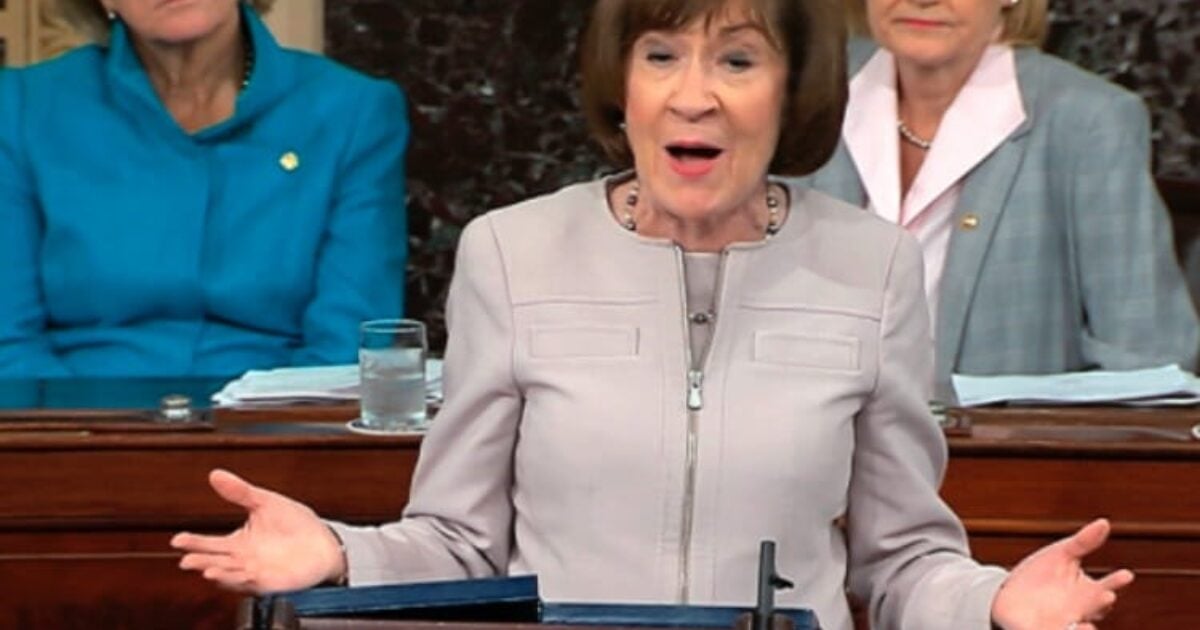Republican Sen. Susan Collins of Maine is calling for “extensive committee investigations” into President-elect Donald Trump’s appointees to oversee health agencies.
Last week, Trump nominated lawyer Robert F. Kennedy Jr. to be secretary of the Department of Health and Human Services.
Former congressman and California Attorney General Xavier Becerra is the current head of the agency. Collins was the only Republican senator to confirm his appointment in a 50 to 49 vote in March 2021.
HHS encompasses the Centers for Disease Control and Prevention, the Food and Drug Administration, the Centers for Medicaid and Medicare, and the National Institutes of Health, among other organizations.
On Tuesday, Trump also announced that Dr. Mehmet Oz is his pick to head up the Centers for Medicare and Medicaid Service.
Very excited that my friend @DrOz has agreed to run CMS. Thank you @realDonaldTrump for this outstanding nomination. Welcome Dr. Oz to The Avengers. Let’s Make America Healthy Again! https://t.co/jjQoqoiZuC pic.twitter.com/e7CSkh5kem
— Robert F. Kennedy Jr (@RobertKennedyJr) November 19, 2024
Collins told Axios that the Senate’s constitutional “advice and consent” duty for Trump’s appointees “means a background check, it means extensive committee investigations and questionnaires and public hearings.”
The moderate GOP senator also said that she would be against Trump making recess appointments asserting it would be a way to “avoid and evade the Senate’s constitutional duty to do advice and consent.”
Trump posted on Truth Social on Nov. 10, “Any Republican Senator seeking the coveted LEADERSHIP position in the United States Senate must agree to Recess Appointments (in the Senate!), without which we will not be able to get people confirmed in a timely manner.”
“Sometimes the votes can take two years, or more,” he continued. “This is what they did four years ago, and we cannot let it happen again. We need positions filled IMMEDIATELY!”
Article II, Section 2 of the Constitution provides, “The President shall have Power to fill up all Vacancies that may happen during the Recess of the Senate, by granting Commissions which shall expire at the End of their next Session.”
The Senate must be in recess at least 10 days in order for a president to make a recess appointment, according to historical practice, according to The New York Times.
Several presidents have used recess appointments, including Bill Clinton, who made 139 recess appointments, and George W. Bush, 171, and Barack Obama, 32, but not for cabinet-level positions, the Times said.
In 2005, Bush named John Bolton as his ambassador to the United Nations through a recess appointment, when Democratic senators and one Republican filibustered him, thereby preventing him from receiving an up or down confirmation vote. Senate rules changed in 2013 preventing a filibuster from being employed to block a confirmation vote on administration officials.
Senate Majority Leader-elect John Thune said last week that recess appointments are “on the table.”
“I think that all options are on the table, including recess appointments. Hopefully, it doesn’t get to that but we’ll find out fairly quickly whether the Democrats want to play ball or not,” he said during a Thursday Fox News interview.
LEADER-ELECT THUNE: “All options are on the table, including recess appointments. Hopefully it doesn’t get to that.” pic.twitter.com/labzFukMgQ
— Breaking911 (@Breaking911) November 14, 2024
“We’ll start having confirmation hearings soon as the new Senate is sworn in in January,” he added. “By the time he takes the oath of office, hopefully, a lot of those nominees will be through their confirmation hearings, and we’ll be ready to act on them on the Senate floor.”
“Then it’s a question of how much do the Democrats resist or object or try to block those nominations from going forward. And we’re going to grind them out,” Thune said.
Axios identified Collins, along with Alaska Sen. Lisa Murkowski, as two members of the Republican caucus who could create problems for approving at least some of Trump’s nominees.
Susan Collins and Lisa Murkowski voted to confirm Rachel Levine to be Assistant Secretary of Health and Human Services but say they cannot vote to confirm Matt Gaetz as AG b/c he’s not a serious pick.
Collins and Murkowski aren’t serious senators. pic.twitter.com/hDXtTUTETG
— David Giglio (@DavidGiglioCA) November 15, 2024
The two were the only GOP senators to vote to confirm Rachel Levine, current assistant HHS secretary.
This article appeared originally on The Western Journal.
The post GOP Senator Susan Collins Throws a Wrench in Trump’s Cabinet Plans appeared first on The Gateway Pundit.


